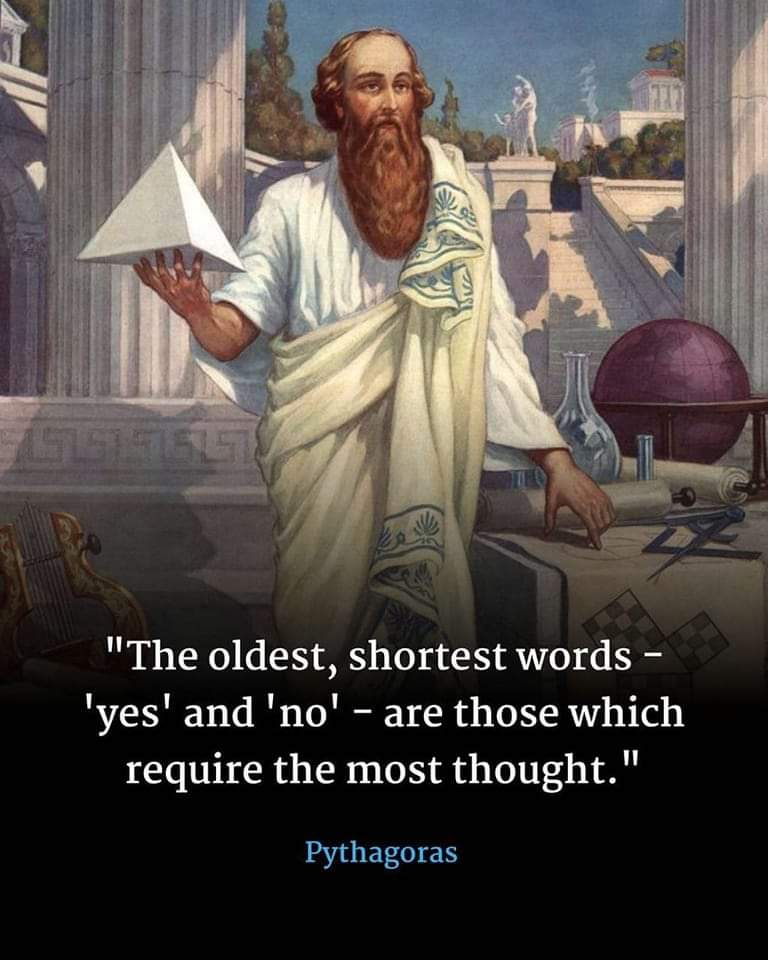The quote in the image, attributed to Pythagoras, highlights the profound significance of simplicity and decisiveness.
The quote in the image, attributed to Pythagoras, highlights the profound significance of simplicity and decisiveness. The words "yes" and "no" are indeed among the shortest in the English language, but they carry immense weight. Their simplicity is deceptive; each is definitive, allowing no room for ambiguity or indecision. When we say "yes," we are committing to something, affirming its value, and aligning ourselves with it. Conversely, "no" is a rejection, a boundary-setting word that can be equally powerful and consequential.
Pythagoras, a philosopher and mathematician from ancient Greece, understood the gravity of these words. His philosophy often revolved around the concepts of harmony and proportion, both in mathematical terms and in life's ethical decisions. In the context of his broader work, this quote reminds us that the foundations of complex systems—be they mathematical, ethical, or societal—are often built on simple, binary decisions.
When we consider our answers to questions, we must weigh the consequences, the responsibilities, and the ethical implications of affirming or denying. The brevity of these words does not mirror the breadth of consideration they demand; indeed, their ease of utterance is inversely proportional to the weight of their impact. A "yes" can set events into motion, binding us to promises, actions, and paths that shape our lives. A "no" can be equally transformative, closing doors but perhaps opening others, defining limits, and often requiring as much courage as affirmation.
The use of these words reflects our agency and our autonomy. Every "yes" and "no" is an exercise in defining ourselves and our relationships to the world. They are the primary colors of intention from which the complex tapestry of human interaction is woven. Thus, despite—or perhaps because of—their simplicity, they are the words that should be chosen with the utmost care and thought.


